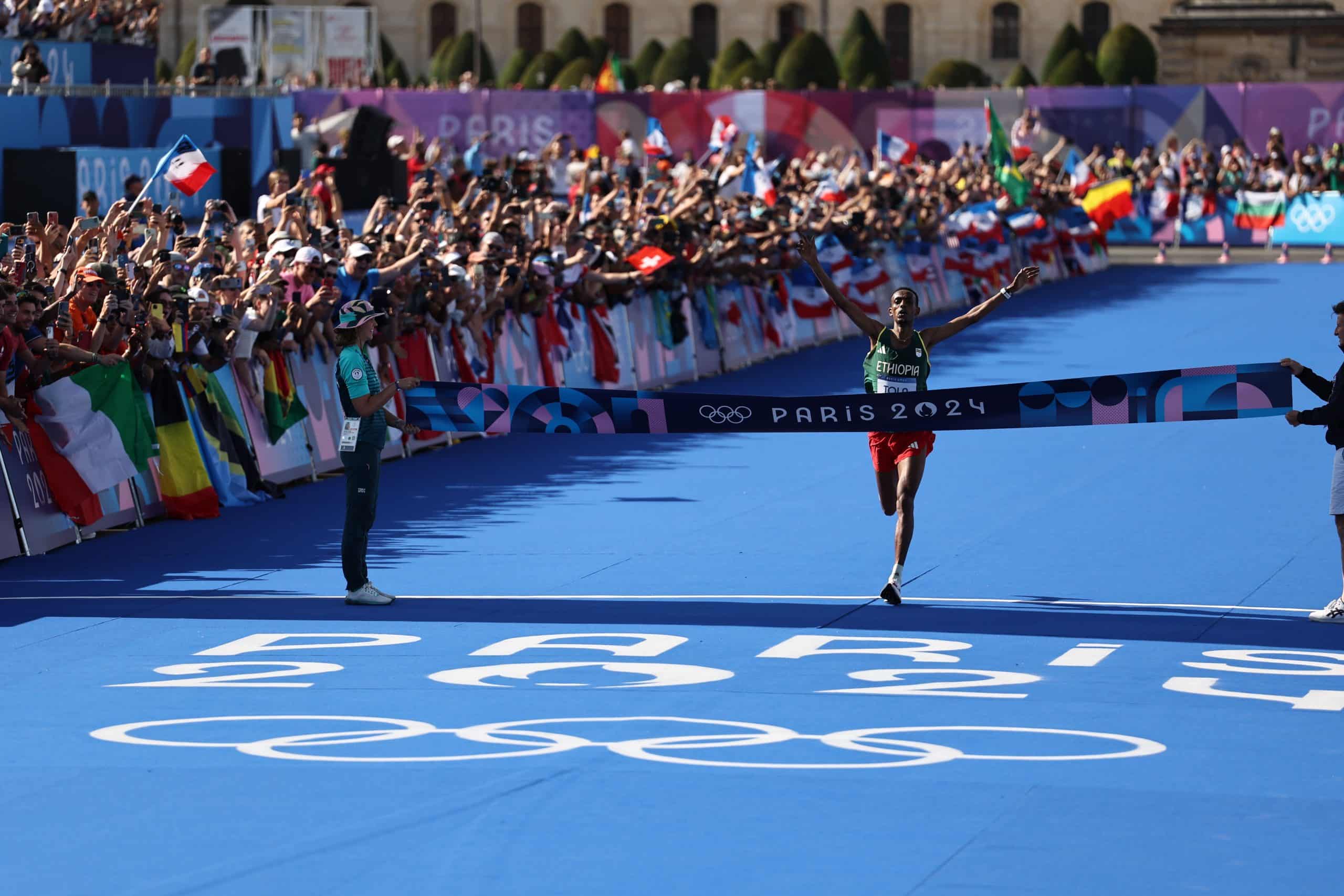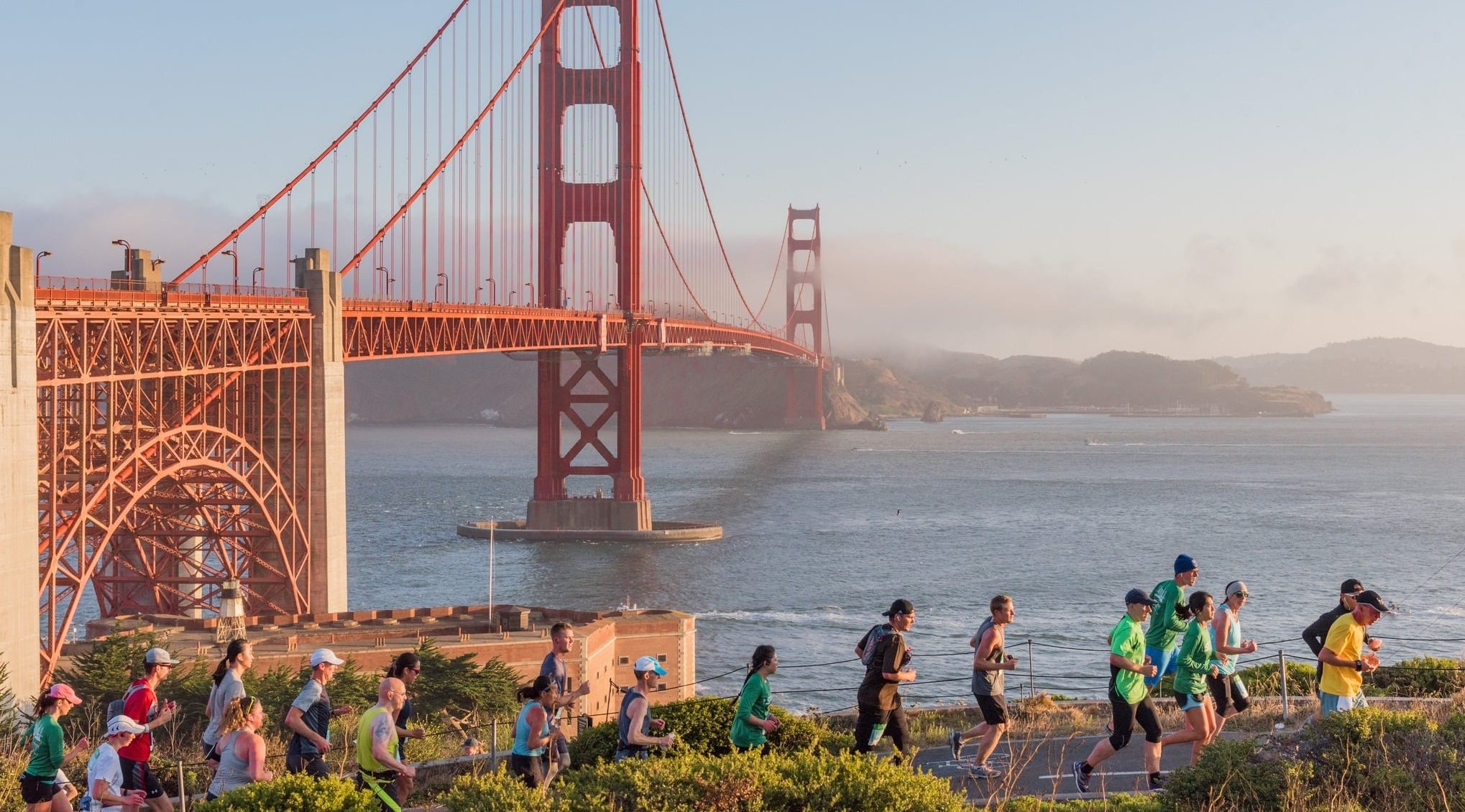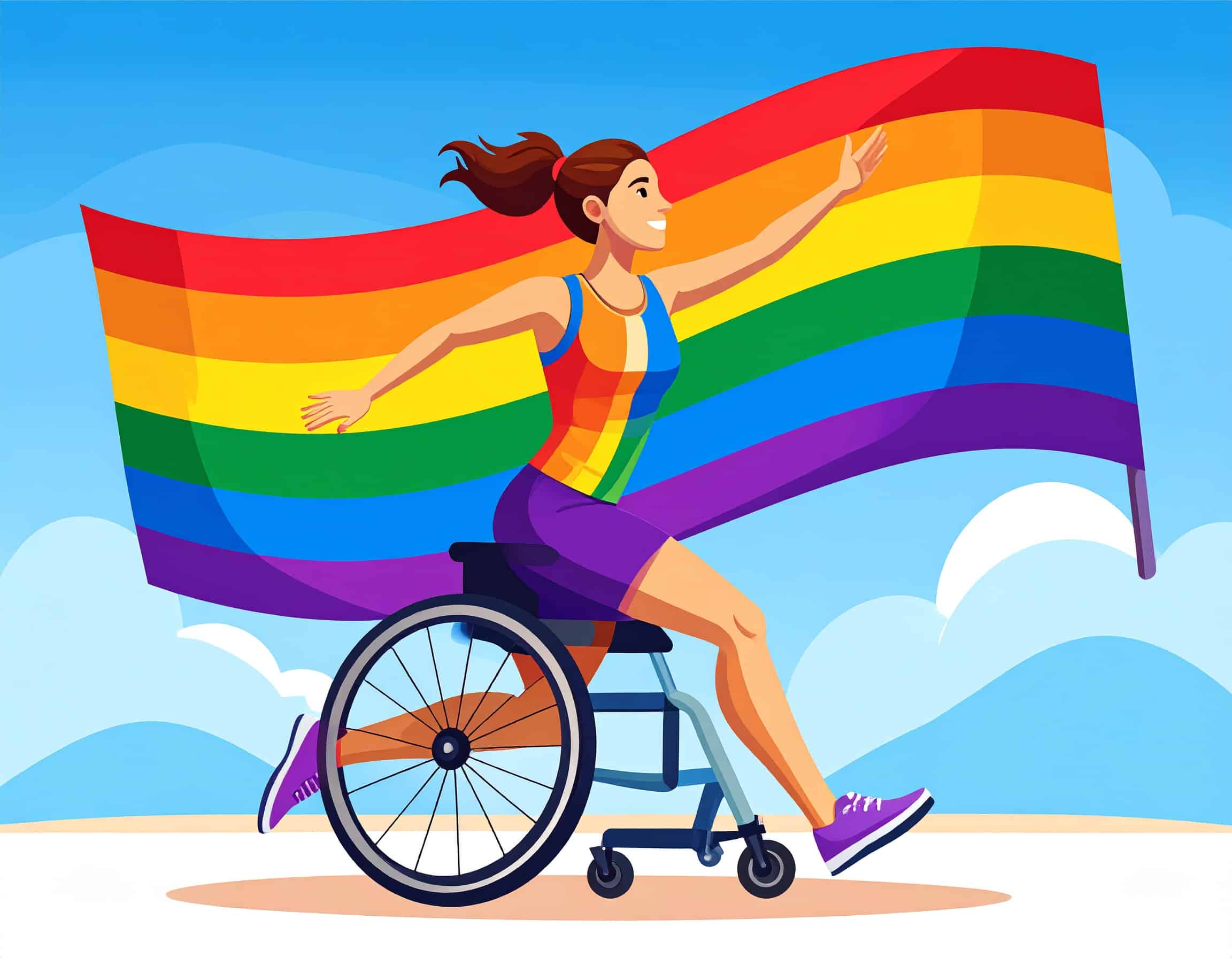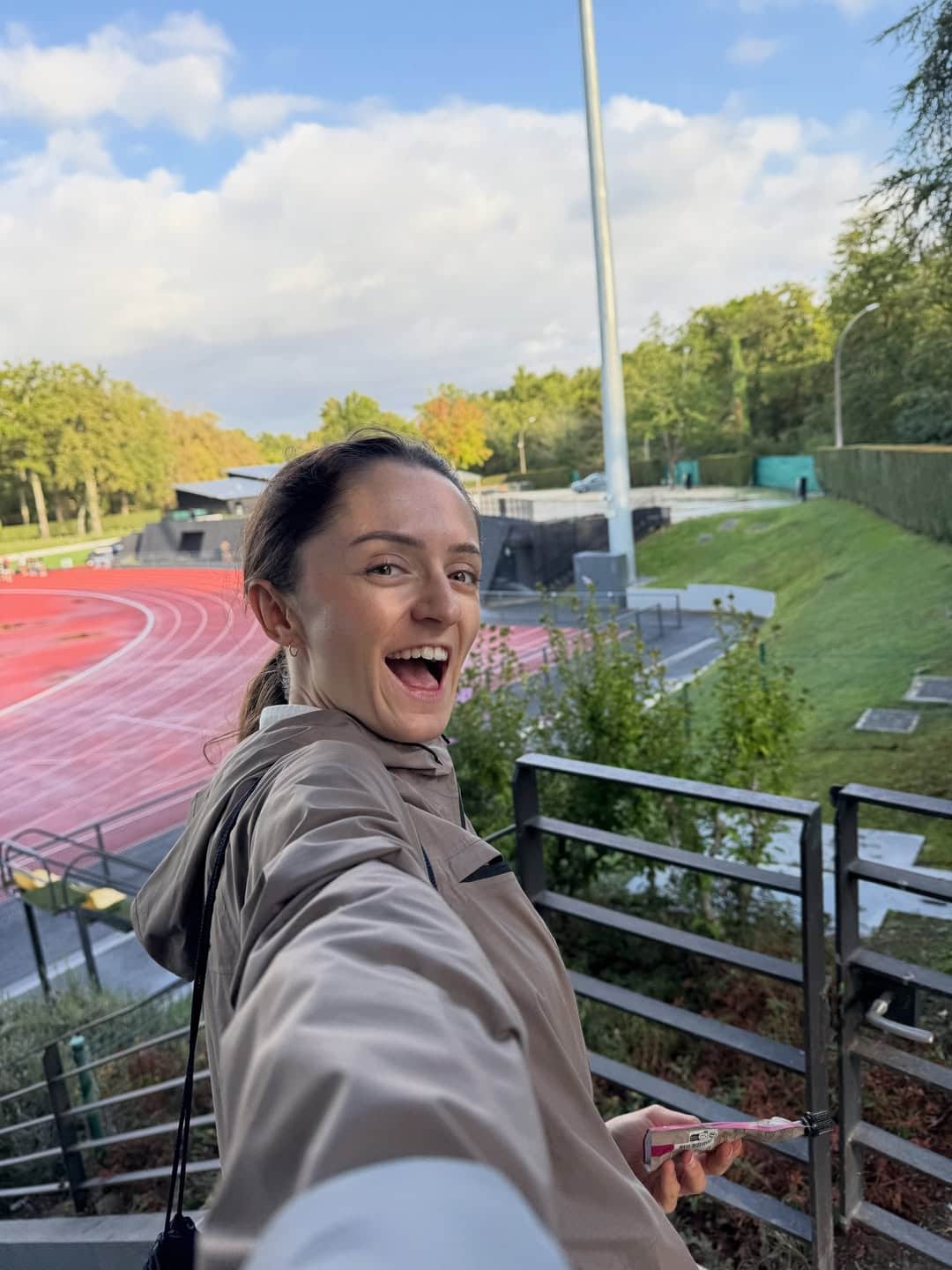Ethiopia: The Other Running Giant
In the second half of the 20th century, alongside its neighbor Kenya, Ethiopia rose to become one of the world’s greatest long-distance running nations. Today, stars like Tamirat Tola and Tigist Assefa continue to honor a rich tradition that began with the legendary Abebe Bikila back in 1960.
Ethiopia has long been a land of champions. While Kenya is often cited as the leading power in marathon running, Ethiopia stands shoulder to shoulder with its rival—and sometimes even ahead. The latest results confirm it: Tamirat Tola, born in 1991 in Sebeta, won the marathon at the 2024 Paris Olympics, setting an Olympic record of 2:06:26. On the women’s side, Tigist Assefa, from Addis Ababa, has become one of the sport’s brightest stars. In Paris, she claimed silver in her first Olympic marathon, battling all the way with Dutch superstar Sifan Hassan—herself born in Ethiopia. From New York to Berlin to London, Ethiopian athletes remain constant fixtures at the top. But when exactly did this dominance begin?
| The Roots of Ethiopian Running
The story of Ethiopian running truly begins with Abebe Bikila, who became a national icon at the 1960 Rome Olympics, winning the marathon barefoot to claim the country’s first Olympic medal. Four years later in Tokyo, he repeated the feat with another gold. Bikila became a symbol for a people who had long fought for their independence and freedom. Ethiopia’s history is marked by resistance—against colonial attempts by Italy and through internal struggles for self-determination. During the reign of Emperor Haile Selassie, who even attended Bikila’s funeral in 1973, the runner had already become a national legend. Like Kenya, Ethiopia is blessed with high-altitude terrain—Addis Ababa itself sits at 2,355 meters (7,700 ft)—a natural advantage for endurance running thanks to increased red blood cell production. Running has become part of the country’s culture, with countless stories of children running several kilometers to school. What might sound like a cliché was actually lived by Haile Gebrselassie, who famously recalled running 10 km each way as a child, schoolbooks tucked under his arm—an early training ground for the stride and endurance that made him a legend.
It was under Gebrselassie’s reign in the 1990s and 2000s that Ethiopia confirmed its global dominance. A quadruple world champion over 10,000 m, double Olympic champion (Atlanta 1996, Sydney 2000), and former world marathon record holder (2:03:59), Gebrselassie left an indelible mark not just with his times but with his charisma and influence. Meanwhile, Ethiopian women were also breaking barriers. Fatuma Roba became the first African woman to win Olympic marathon gold in 1996. Derartu Tulu had already become the first African woman Olympic champion in 1992 over 10,000 m, while Elfenesh Alemu, Tirunesh Dibaba, and Meseret Defar brought glory through the 2000s, on both track and road. Tirunesh Dibaba, a 2015 world champion and 2016 Olympic silver medalist over 1500 m, also excelled in the marathon, winning Chicago 2017 in 2:18:31 (PB 2:17:56 in London the same year).
| Today’s Ethiopian Stars
Ethiopia’s golden legacy continues into the present. Among men, Kenenisa Bekele, now 43, still commands respect. He finished second at the 2024 London Marathon in 2:04:15, and fans still remember his breathtaking 2:01:41 in Berlin in 2019—just two seconds off the then-world record. Behind him, a new wave has emerged: Olympic marathon champion Tamirat Tola, 2022 world champion, and Sisay Lemma, winner of the 2021 London Marathon and 2024 Boston Marathon.
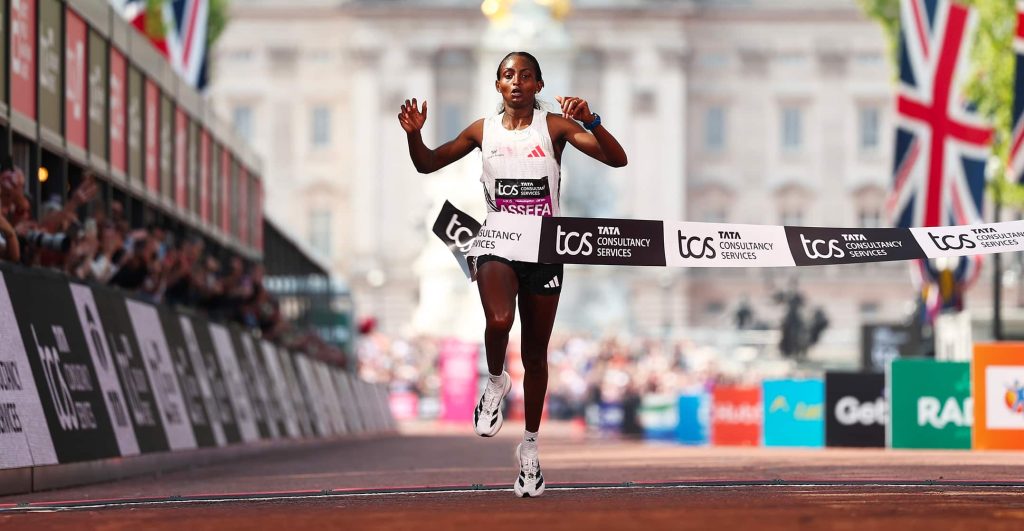
On the women’s side, Ethiopia has established itself as a true powerhouse. Tigist Assefa stunned the world in Berlin in 2023 by setting a then-world record of 2:11:53. Although that mark has since been surpassed by Kenyan Ruth Chepngetich (2:09:56), Assefa remains a dominant force, adding victory at the 2025 London Marathon. Meanwhile, Letesenbet Gidey, world record holder in both the 5000 m and 10,000 m, continues to shine across distances. And Almaz Ayana, Olympic champion in Rio 2016 with a 10,000 m world record (29:17.45), has transitioned brilliantly to the marathon, clocking 2:17:19 on her debut in Amsterdam in 2022.
For both men and women, the list of world-class Ethiopian athletes seems endless.
| The Challenges Ahead
Yet despite its success, Ethiopia faces several hurdles to maintaining its dominance. Compared to Kenya, the country still struggles with infrastructure and institutional support. While Kenya continues to attract major brands and investment—particularly in training hubs like Iten—Ethiopia risks falling behind if it does not capitalize on its exceptional results and heritage.
Some steps have been taken: Haile Gebrselassie launched the Yaya Village Training Center near Addis Ababa in 2009, designed for elite athletes. In 2013, another high-altitude facility opened just outside the capital at 2,700 m. And Kenenisa Bekele has invested in his own training complex, complete with a track and a 30-room hotel for visiting runners.
Still, the country remains less organized at the federation level, and sponsorship opportunities are fewer than in Kenya. Beyond athletics, Ethiopia also faces serious political instability, with ongoing internal conflicts and tense relations with neighbors like Eritrea, Somalia, and Egypt.
In this fragile context, Gebrselassie has turned increasingly toward education, founding schools across Ethiopia to give children broader opportunities. His legacy now extends beyond sport: not only a national hero, but also a leader striving to break the cycle of division that has long plagued his country.

Charles-Emmanuel PEAN
Journalist
